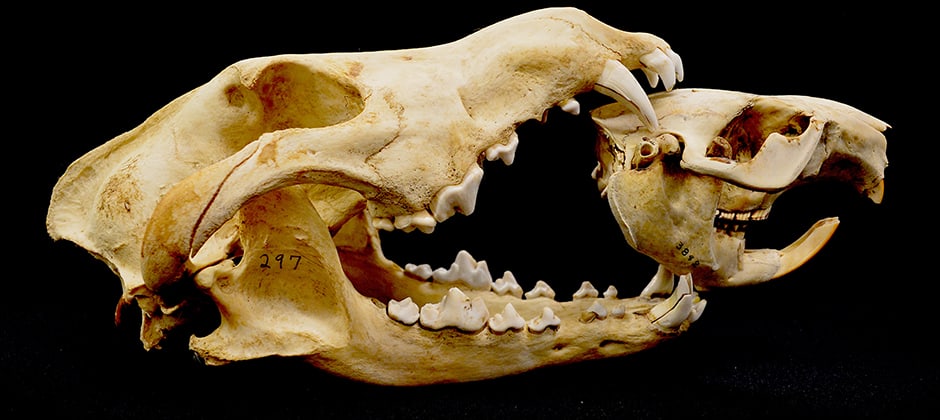Share this article
Can wolf personalities make them better beaver killers?
Some wolves have a propensity to kill beavers more than others in Voyageurs National Park in Minnesota, suggesting this may be part of wolves’ unique personalities.
Wildlife biologists are hesitant to apply human characteristics to animals, but researchers have described personalities in relation to activities like migration and pollination, where different individuals behave in different ways. Researchers with the Voyageurs Wolf Project wondered if personalities should be considered in relation to wolf predation, too.
“It struck us that we had the data to explore in the case of wolves, if wolf personalities are important to wetland dynamics,” said Joseph Bump, a professor at the University of Minnesota and member of the Voyageurs Wolf Project, a study of wolf ecology in the park and surrounding ecosystem.
Past research from the project showed that wolves in the park often ambush and prey on beavers, altering the creation and duration of wetlands. That can contribute to variations in wetlands, adding to ecological heterogeneity, Bump said, which provides habitats for more species. But the team didn’t know why some individual wolves were preying on more beavers than others.
Bump led a study published in Frontiers in Ecology and the Environment to see if some wolves exhibited characters or personalities that were more likely to ambush beavers than others. To conduct the study, the researchers used data from eight pairs of wolves from six wolf packs from 2019 to 2020. They compared the number of times wolves from the same pack in similar habitats and conditions attempted to ambush and kill beavers as well as how many were successful. “That approach allowed us to control variables that influence hunting behavior, such as the number of beavers within a wolf territory,” he said.
They found that some wolves killed over 229% more beavers than other pack members. They also spent 263% more time ambushing beavers than other pack members. “Wolves with these strong beaver killing personalities were disproportionately responsible, relative to the whole wolf population, for beaver predation and subsequent changes in wetlands,” he said.
Bump said they are still looking into what causes these individuals to develop a personality that makes them more likely to kill beavers. It could be that they watched others in their social groups doing so, for example.
While management is usually conducted on the population level, Bump said, understanding wolf personalities could play a role. For instance, if managers know a pack responds to individual characters or personalities that are more likely to cause conflict with humans or livestock, they could deter or remove it.
But, he said, the study also shows the importance of different personalities in affecting the ecosystem. “It contributes to the heterogeneity that’s out there,” he said.
Header Image: A beaver skull is held in the jaws of a wolf skull from northern Minnesota. Credit: Joseph Bump








